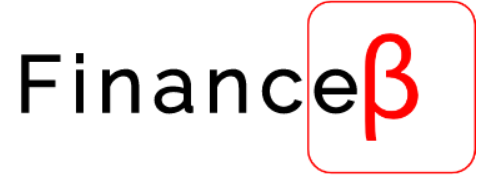The highest body of authority in charge of the overall financial stability in Switzerland is the Swiss National Bank (SNB).
The SNB is mandated to conduct monetary policy, acting as an independent central bank.
As the cornerstone of the financial strength, the primary goal of the SNB is to guarantee price stability by steering liquidity on the money market and by setting interest rates levels.
From time to time, the Swiss National Bank conducts risk analysis and identifies areas that require updating.
Moreover, the SNB sets the financial regulatory framework and oversees the financial market infrastructures.
Defining the Swiss Financial Market Supervisory Authority (FINMA)
Besides the SNB, there is the Swiss Financial Market Supervisory Authority (FINMA), which is the governing body responsible for the financial regulation.
FINMA is in charge of providing supreme authority over the country’s banks, insurance companies, stock exchanges, securities dealers and collective investment schemes such as mutual funds and hedge funds.
FINMA grants the licences for financial institutions and companies to operate, under which they are constantly supervised on compliance with required laws, directives and regulations.
The Swiss Financial Market Supervision Authority provides supervisory tasks where there is a risk to creditors and investors, these efforts are also in line with its measures to fight money laundering.
The main trading exchange is SIX Swiss Exchange which is fully automated and operates electronically.
It is based in Zurich, which is one of the World’s major financial centres.
The stock exchange not only provides access to the stock market, but also other securities such as government bonds and derivatives.
The primary stock market index is the Swiss Market Index (SMI) and represents the Swiss Blue-chip companies that consists of 20 most liquid large and mid-cap equities.
Switzerland is one of the leading nations to favor financial innovation, with it’s stock exchange ranking as the first in the World to implement a fully automated trading and clearing system.
Switzerland promotes personal finance and best practice in terms of savings, social securities and mutual funds investment to its citizens.
Accessibility to the financial market is freely open, as any client can link their bank accounts to a portfolio of securities or managed funds from their e-banking system, and can invest and hold financial instruments with just a few clicks.
Institutions That Dominate the Swiss Financial Landscape
Switzerland’s economy follows the First World model, which is associated to non-theocratic democracies with primarily market-based economies.
Hence, the majority of the population worked in the tertiary or services sector of the economy which accounted for 71% according to the Swiss Statistics Bureau.
According to the Swiss Bankers Association, the financial sector contribution to GDP accounts for 11.6% which represents 5.6% of the total Swiss employment.
Since Europe’s implication in the World Wars, Switzerland’s sovereignty and political position as neutral in the conflicts allowed the country to become a World recognized nation for its stability in terms of Politico-economic aspects, therefore favouring the development of the banking sector.
According to the Swiss Bankers Association, offshore funds domiciled in Switzerland represents roughly about 28% of all the overseas funds.
The Evolution of the Financial Industry and the Projected Innovation in the Sector
According to Ernst and Young, Switzerland is perceived as one of the main global financial centres and an innovation hub that led in the World electronic stock exchange, therefore Switzerland is a prime location in terms of the evolution of the financial industry and particularly in the advent of the financial technology, Fintech.
Switzerland recently lost its status of safe haven resulting in the withdrawal of the banking secrecy, which as a result might force the country to innovate and review integrally its financial institutions structure so as to stand out form other foreign financial centres.
Switzerland is ranked among the top ten innovative countries alongside New York, London, Hong Kong, and Singapore.
It’s positioning as a highly global economic zone that is favorable to local and international investors plays a big role towards it’s status and appeal in the financial world.
Data Sources and References:
FINMA (2016). FINMA – an independent supervisory authority
Six Group (2008). SWX Swiss Exchange becomes SIX Swiss Exchange – EXFEED is now named SIX Exfeed
Ernst & Young (2016). Swiss Fintech Report 2016 – The role of Switzerland as a fintech hub
Swiss National Bank (2016). Financial Stability
The economic Significance of the Swiss Financial Centre (2009). Swiss Bankers Association


